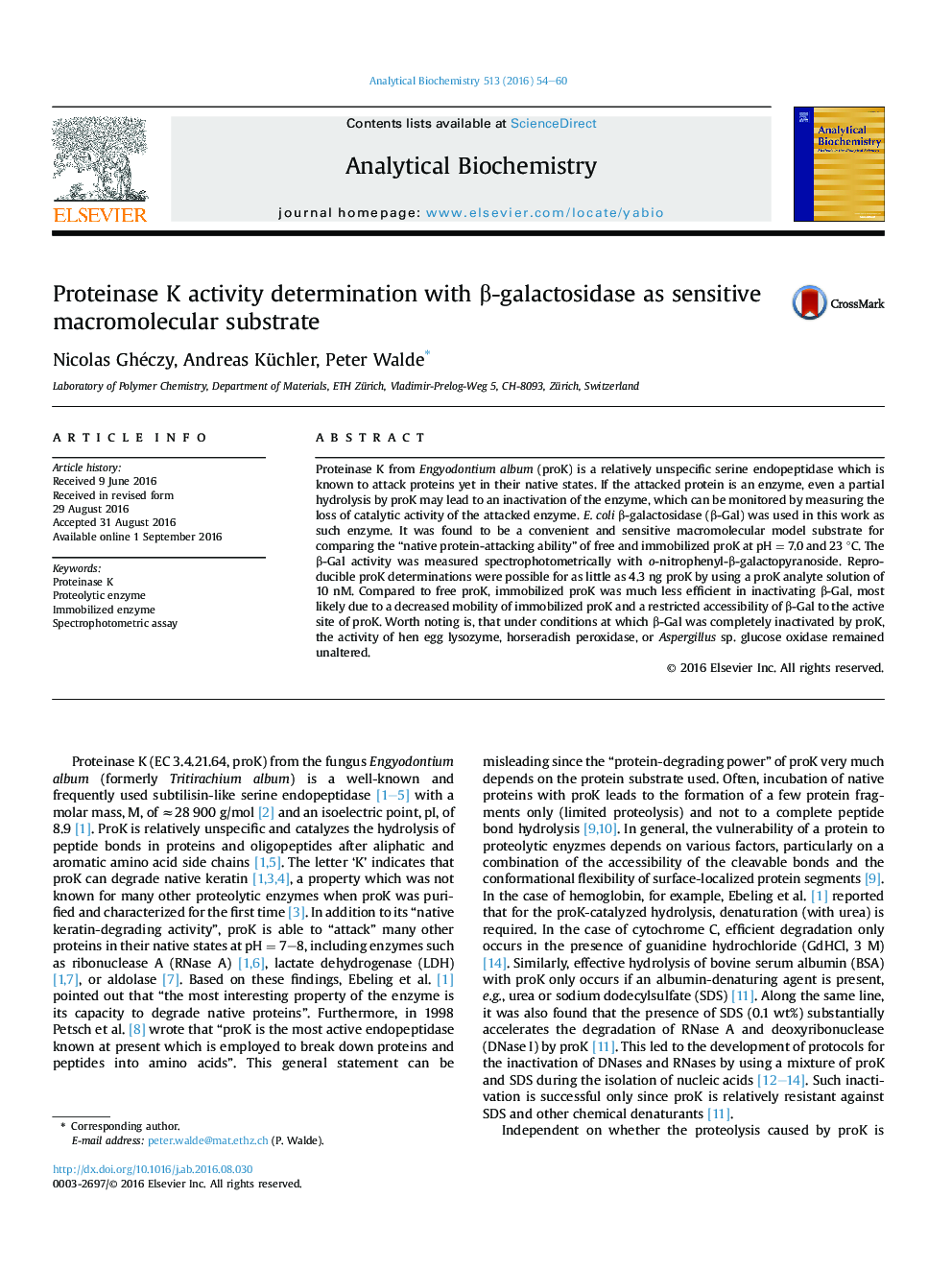| Article ID | Journal | Published Year | Pages | File Type |
|---|---|---|---|---|
| 7557278 | Analytical Biochemistry | 2016 | 7 Pages |
Abstract
Proteinase K from Engyodontium album (proK) is a relatively unspecific serine endopeptidase which is known to attack proteins yet in their native states. If the attacked protein is an enzyme, even a partial hydrolysis by proK may lead to an inactivation of the enzyme, which can be monitored by measuring the loss of catalytic activity of the attacked enzyme. E. coli β-galactosidase (β-Gal) was used in this work as such enzyme. It was found to be a convenient and sensitive macromolecular model substrate for comparing the “native protein-attacking ability” of free and immobilized proK at pH = 7.0 and 23 °C. The β-Gal activity was measured spectrophotometrically with o-nitrophenyl-β-galactopyranoside. Reproducible proK determinations were possible for as little as 4.3 ng proK by using a proK analyte solution of 10 nM. Compared to free proK, immobilized proK was much less efficient in inactivating β-Gal, most likely due to a decreased mobility of immobilized proK and a restricted accessibility of β-Gal to the active site of proK. Worth noting is, that under conditions at which β-Gal was completely inactivated by proK, the activity of hen egg lysozyme, horseradish peroxidase, or Aspergillus sp. glucose oxidase remained unaltered.
Related Topics
Physical Sciences and Engineering
Chemistry
Analytical Chemistry
Authors
Nicolas Ghéczy, Andreas Küchler, Peter Walde,
